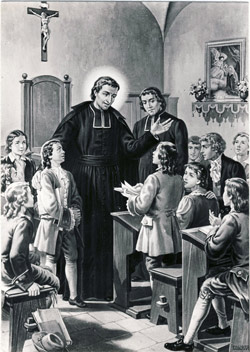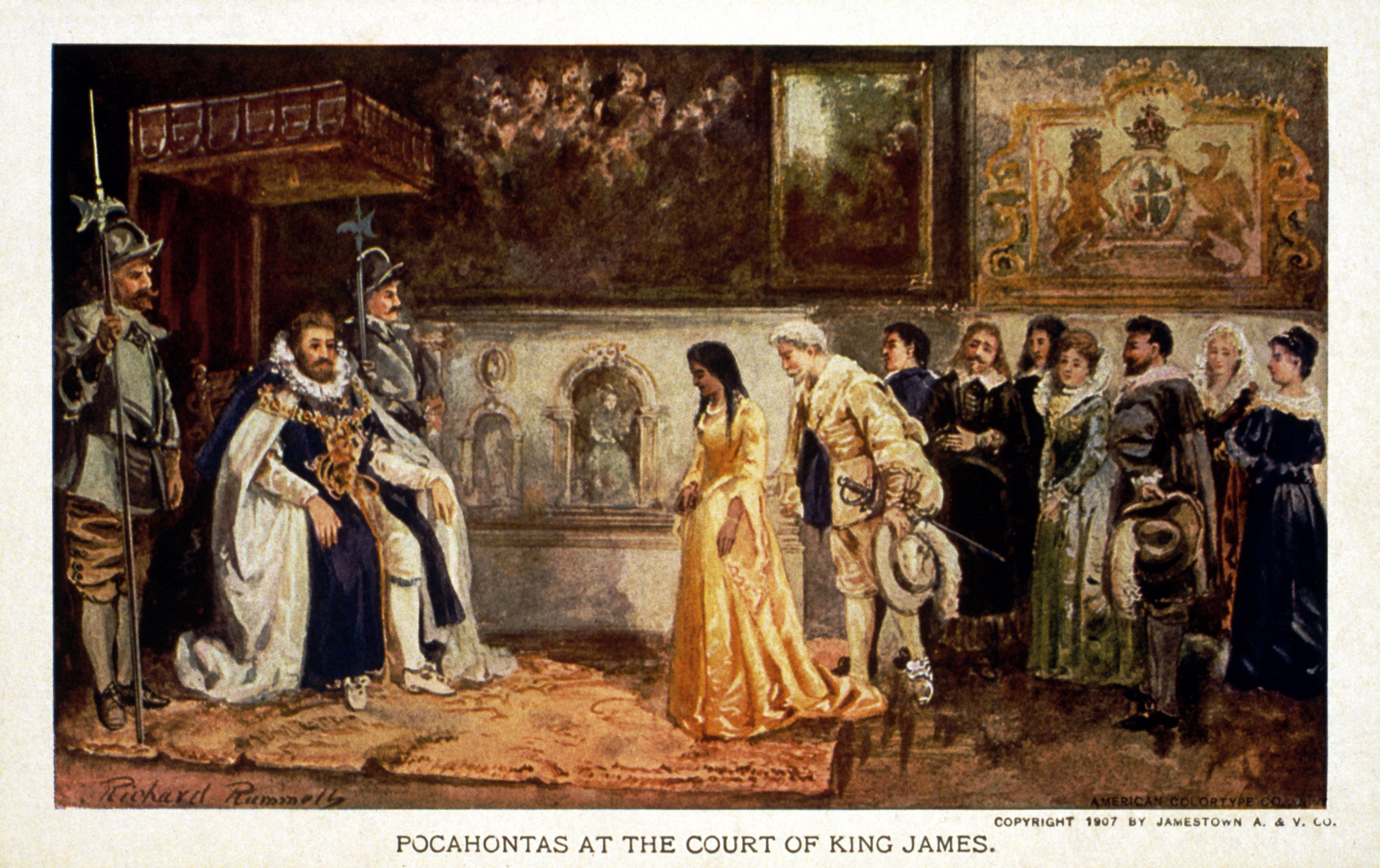|
Mikołaj Prażmowski
Mikołaj Jan Prażmowski (1617 – 15 April 1673) was the archbishop of Gniezno and primate of Poland from 1666. He was Interrex from 1668 to 1669. He was born in Prażmów. He was bishop A bishop is an ordained member of the clergy who is entrusted with a position of Episcopal polity, authority and oversight in a religious institution. In Christianity, bishops are normally responsible for the governance and administration of di ... of Łuck from 1659, and bishop of Warmia from 1664. He was previously chancellor in 1658-1666 Grand Crown Secretary, Crown Deputy Chancellors from 1658, Grand Secretary of the Crown, Grand Secretary of the Crown from 1652. He died in Ujazdów References External links Virtual tour Gniezno Cathedral {{DEFAULTSORT:Prazmowski, Mikolaj [...More Info...] [...Related Items...] OR: [Wikipedia] [Google] [Baidu] |
Archbishop
In Christian denominations, an archbishop is a bishop of higher rank or office. In most cases, such as the Catholic Church, there are many archbishops who either have jurisdiction over an ecclesiastical province in addition to their own archdiocese ( with some exceptions), or are otherwise granted a titular archbishopric. In others, such as the Lutheran Church of Sweden, the title is only borne by the leader of the denomination. Etymology The word ''archbishop'' () comes via the Latin . This in turn comes from the Greek , which has as components the etymons -, meaning 'chief', , 'over', and , 'guardian, watcher'. Early history The earliest appearance of neither the title nor the role can be traced. The title of "metropolitan" was apparently well known by the 4th century, when there are references in the canons of the First Council of Nicæa of 325 and Council of Antioch of 341, though the term seems to be used generally for all higher ranks of bishop, including patriarc ... [...More Info...] [...Related Items...] OR: [Wikipedia] [Google] [Baidu] |
Roman Catholic Archdiocese Of Warsaw
The Metropolitan Archdiocese of Warsaw (, ) is a Latin Church ecclesiastical territory or diocese of the Catholic Church in Poland encompassing the Polish capital. It was erected on October 16, 1798 and was elevated to an Archdiocese on June 30, 1818. A Metropolitan See, its suffragan dioceses are the Roman Catholic Diocese of Płock and the Roman Catholic Diocese of Warszawa-Praga. According to the archdiocese's statistics, 30.4% of its population attended a church weekly in 2013. That is higher than a year earlier (29.8%) but church attendance Church attendance is a central religious practice for many Christians; some Christian denominations require church attendance on the Lord's Day (Sunday). The Catholic Church teaches that on Sundays and other holy days of obligation, the faithf ... may still be declining. Metropolitan Archbishop of Warsaw The current archbishop, Adrian Joseph Galbas, appointed on 4 November 2024, formerly Archbishop of Katowice from 2023. He succ ... [...More Info...] [...Related Items...] OR: [Wikipedia] [Google] [Baidu] |
Polish Interreges
Polish may refer to: * Anything from or related to Poland, a country in Europe * Polish language * Polish people, people from Poland or of Polish descent * Polish chicken * Polish brothers (Mark Polish and Michael Polish, born 1970), American twin screenwriters * Kevin Polish, an American Paralympian archer Polish may refer to: * Polishing, the process of creating a smooth and shiny surface by rubbing or chemical action ** French polishing, polishing wood to a high gloss finish * Nail polish * Shoe polish * Polish (screenwriting), improving a script in smaller ways than in a rewrite See also * * * Polishchuk (surname) * Polonaise (other) A polonaise ()) is a stately dance of Polish origin or a piece of music for this dance. Polonaise may also refer to: * Polonaises (Chopin), compositions by Frédéric Chopin ** Polonaise in A-flat major, Op. 53 (, ''Heroic Polonaise''; ) * Polon ... {{Disambiguation, surname Language and nationality disambiguation pages ... [...More Info...] [...Related Items...] OR: [Wikipedia] [Google] [Baidu] |
17th-century Polish Roman Catholic Priests
The 17th century lasted from January 1, 1601 (represented by the Roman numerals MDCI), to December 31, 1700 (MDCC). It falls into the early modern period of Europe and in that continent (whose impact on the world was increasing) was characterized by the Baroque cultural movement, the latter part of the Spanish Golden Age, the Dutch Golden Age, the French ''Grand Siècle'' dominated by Louis XIV, the Scientific Revolution, the world's first public company and megacorporation known as the Dutch East India Company, and according to some historians, the General Crisis. From the mid-17th century, European politics were increasingly dominated by the Kingdom of France of Louis XIV, where royal power was solidified domestically in the civil war of the Fronde. The semi-feudal territorial French nobility was weakened and subjugated to the power of an absolute monarchy through the reinvention of the Palace of Versailles from a hunting lodge to a gilded prison, in which a greatly expanded ro ... [...More Info...] [...Related Items...] OR: [Wikipedia] [Google] [Baidu] |
Crown Vice-chancellors
A crown is a traditional form of head adornment, or hat, worn by monarchs as a symbol of their power and dignity. A crown is often, by extension, a symbol of the monarch's government or items endorsed by it. The word itself is used, particularly in Commonwealth countries, as an abstract name for the monarchy itself (and, by extension, the state of which said monarch is head) as distinct from the individual who inhabits it (that is, ''The Crown''). A specific type of crown (or coronet for lower ranks of peerage) is employed in heraldry under strict rules. Indeed, some monarchies never had a physical crown, just a heraldic representation, as in the constitutional kingdom of Belgium. Variations * Costume headgear imitating a monarch's crown is also called a crown hat. Such costume crowns may be worn by actors portraying a monarch, people at costume parties, or ritual "monarchs" such as the king of a Carnival krewe, or the person who found the trinket in a king cake. * The nu ... [...More Info...] [...Related Items...] OR: [Wikipedia] [Google] [Baidu] |
Polish Roman Catholic Bishops
Polish may refer to: * Anything from or related to Poland, a country in Europe * Polish language * Polish people, people from Poland or of Polish descent * Polish chicken * Polish brothers (Mark Polish and Michael Polish, born 1970), American twin screenwriters * Kevin Polish, an American Paralympian archer Polish may refer to: * Polishing, the process of creating a smooth and shiny surface by rubbing or chemical action ** French polishing, polishing wood to a high gloss finish * Nail polish * Shoe polish * Polish (screenwriting), improving a script in smaller ways than in a rewrite See also * * * Polishchuk (surname) * Polonaise (other) A polonaise ()) is a stately dance of Polish origin or a piece of music for this dance. Polonaise may also refer to: * Polonaises (Chopin), compositions by Frédéric Chopin ** Polonaise in A-flat major, Op. 53 (, ''Heroic Polonaise''; ) * Polon ... {{Disambiguation, surname Language and nationality disambiguation pages ... [...More Info...] [...Related Items...] OR: [Wikipedia] [Google] [Baidu] |
1673 Deaths
Events January–March * January 22 – Impersonator Mary Carleton is hanged at Newgate Prison in London, for multiple thefts and returning from penal transportation. * February 10 – Molière's ''comédie-ballet'' '' The Imaginary Invalid'' premiers in Paris. During the fourth performance, on February 17, the playwright, playing the title rôle, collapses on stage, dying soon after. * March 29 – Test Act: Roman Catholics and others who refuse to receive the sacrament of the Church of England cannot vote, hold public office, preach, teach, attend the universities or assemble for meetings in England. On June 12, the king's Catholic brother, James, Duke of York, is forced to resign the office of Lord High Admiral because of the Act. April–June * April 27 – '' Cadmus et Hermione'', the first opera written by Jean-Baptiste Lully, premières at the Paris Opera in France. * May 17 – In America, trader Louis Joliet and Jesuit miss ... [...More Info...] [...Related Items...] OR: [Wikipedia] [Google] [Baidu] |
1617 Births
Events January–March * January 5 **Pocahontas and Tomocomo of the Powhatan Algonquian tribe, in the Virginia colony of America, meet King James I of England as his guests, at the Banqueting House at Whitehall. **'' The Mad Lover'', a play by John Fletcher, is given its first performance. * February 27 – The Treaty of Stolbovo ends the Ingrian War between Sweden and Russia. Sweden gains Ingria and Kexholm. * March 4 – On Shrove Tuesday, angry rioters burn down London's Cockpit Theatre because of its increase in the price of admission to its plays. Three rioters are killed when the actors at the theater defend themselves. * March 7 – Francis Bacon is appointed as Lord Keeper of the Great Seal of England and is designated by King James I to serve as regent during the time that the King of England is away from Westminster to travel to Scotland. * March 21 – Pocahontas (Rebecka Rolfe), daughter of the Chief of the Powhatan Algonquian tri ... [...More Info...] [...Related Items...] OR: [Wikipedia] [Google] [Baidu] |
Bishop
A bishop is an ordained member of the clergy who is entrusted with a position of Episcopal polity, authority and oversight in a religious institution. In Christianity, bishops are normally responsible for the governance and administration of dioceses. The role or office of the bishop is called episcopacy or the episcopate. Organisationally, several Christian denominations utilise ecclesiastical structures that call for the position of bishops, while other denominations have dispensed with this office, seeing it as a symbol of power. Bishops have also exercised political authority within their dioceses. Traditionally, bishops claim apostolic succession, a direct historical lineage dating back to the original Twelve Apostles or Saint Paul. The bishops are by doctrine understood as those who possess the full Priest#Christianity, priesthood given by Jesus in Christianity, Jesus Christ, and therefore may ordain other clergy, including other bishops. A person ordained as a deacon, pri ... [...More Info...] [...Related Items...] OR: [Wikipedia] [Google] [Baidu] |
Prażmów, Masovian Voivodeship
Prażmów is a village in Piaseczno County, Masovian Voivodeship, in east-central Poland. It is the seat of the gmina (administrative district) called Gmina Prażmów. It lies approximately south of Piaseczno and south of Warsaw Warsaw, officially the Capital City of Warsaw, is the capital and List of cities and towns in Poland, largest city of Poland. The metropolis stands on the Vistula, River Vistula in east-central Poland. Its population is officially estimated at .... References Villages in Piaseczno County {{Piaseczno-geo-stub ... [...More Info...] [...Related Items...] OR: [Wikipedia] [Google] [Baidu] |
Roman Catholic Archdiocese Of Gniezno
The Archdiocese of Gniezno (, ) is the oldest Latin Catholic archdiocese in Poland, located in the city of Gniezno."Archdiocese of Gniezno" '' Catholic-Hierarchy.org''. David M. Cheney. Retrieved March 27, 2016"Metropolitan Archdiocese of Gniezno" ''GCatholic.org''. Gabriel Chow. Retrieved March 27, 2016 The comprises the |
Interrex (Poland)
The institution of interrex existed in the Crown of the Kingdom of Poland, whose ruling classes liked to view their Commonwealth as an heir to Roman Empire traditions. The Commonwealth's monarch, holding a double title of the Two Nations (King of Poland and Grand Duke of Lithuania), entered into their office by free election (''wolna elekcja''), which often led to a relatively long interregnum. Since 1572, the role of interrex traditionally fell to the Archbishop of Gniezno and Primate of Poland of the Roman Catholic Church. The Archbishop could nominate a replacement (traditionally he would choose the Bishop of Kujawy). The interrex would represent the country on the international scene and oversee the internal administration until a new king was elected. In special circumstances he could declare war and negotiate peace. He summoned and presided over the convocation sejm and the election sejm, the gathering of nobility that elected the king. He also announced the election ... [...More Info...] [...Related Items...] OR: [Wikipedia] [Google] [Baidu] |





